

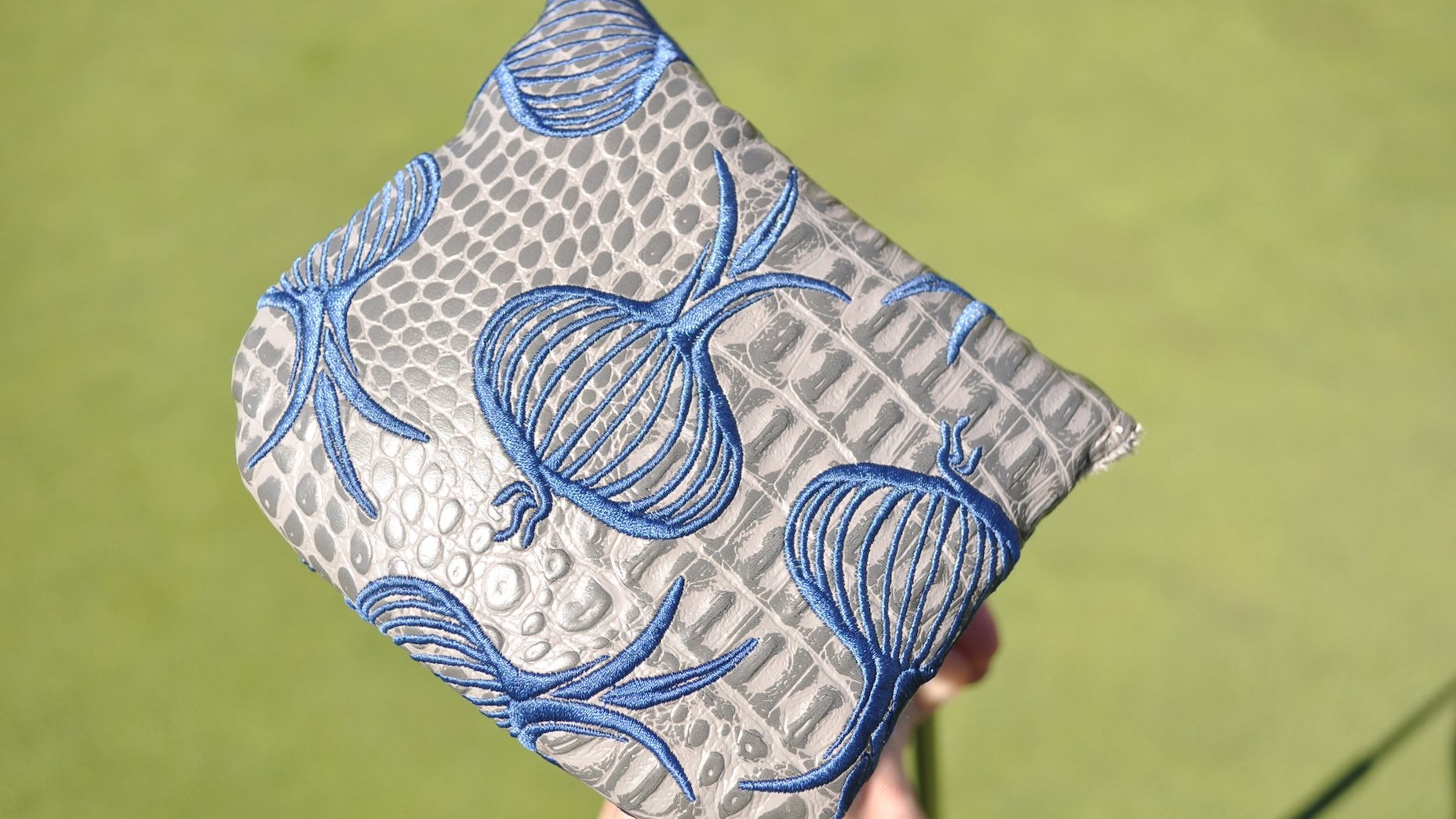
The onion logo belongs on McIlroy’s putter cover belongs to Ohoopee Match Club, an ultra-exclusive hideaway designed by Gil Hanse in Cobbtown, Georgia.
Jonathan Wall/GOLF
The gear crew at GOLF.com spends a lot of time at Tour events snapping photographs of the tools used by the best players in the world. Posting club images without context sometimes works, but it doesn’t help the weekend golfer understand the why behind a pro’s setup.
In this GOLF.com series, equipment editors Jonathan Wall and Ryan Barath answer those questions by highlighting interesting clubs in players’ bags, unique weighting, loft sleeve settings and more. Welcome to “Bag Spy.”
***
Roughly seven weeks remain in the PGA Tour season, which is hard to believe when you think about it. With the final major on tap next week now feels like a good time to take inventory of items that caught our eye while perusing the golf bags of the tour’s elite this season.
Some finds are obvious, while others took some digging to unearth. Let’s get to it.
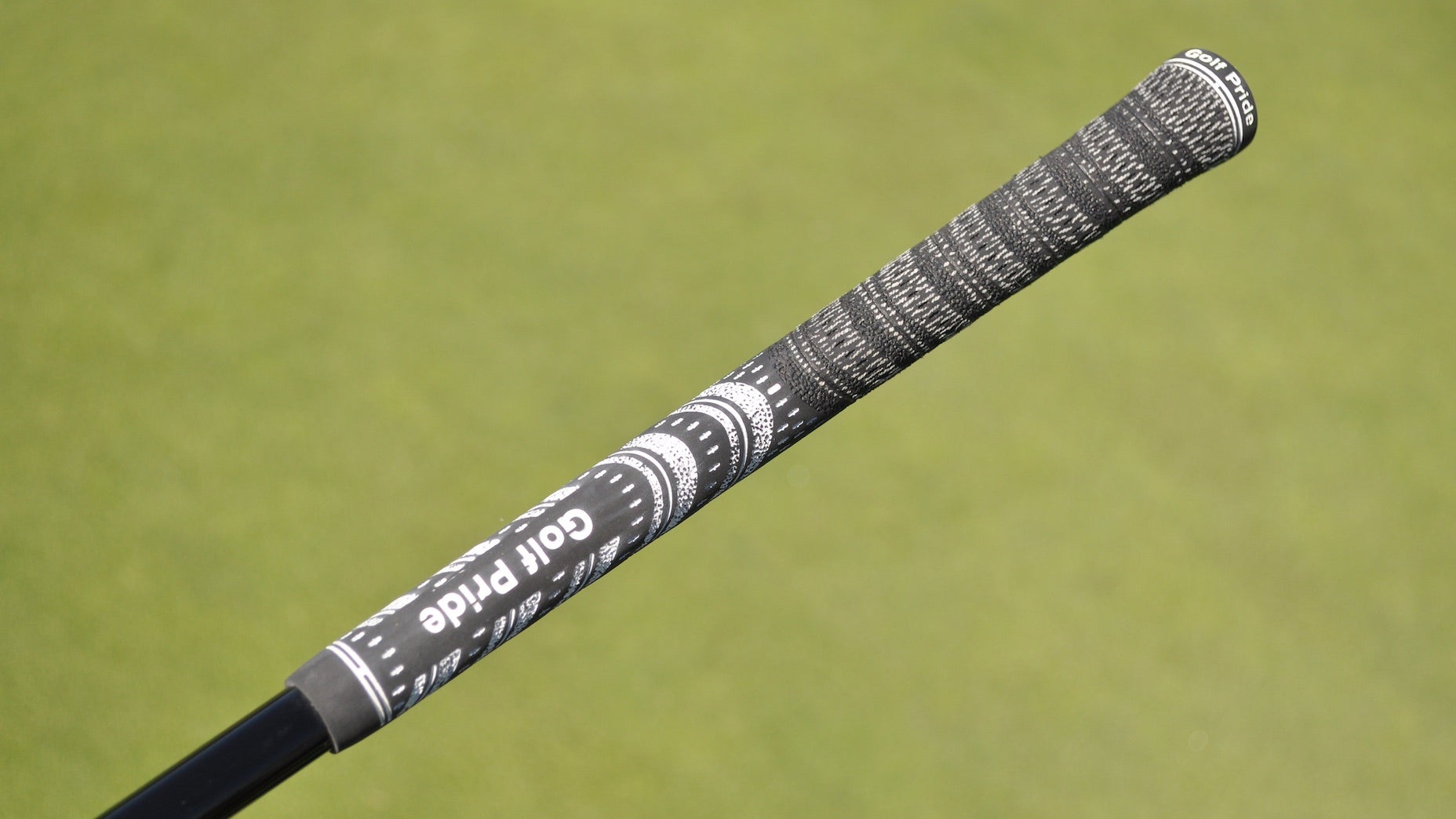
Jonathan Wall/GOLF
Recent BagSpy reports confirmed something we’ve known for years: Golf Pride has a stranglehold on tour grip usage. I’d venture a guess that it’s upward of 80-plus percent of the field many weeks. Scottie Scheffler, Rory McIlroy, Xander Schauffele, Adam Scott, Viktor Hovland — and the list goes on and on.
During a recent deep dive into tour grip specs, we noticed only Akshay Bahatia, Tony Finau, Jordan Spieth and Bubba Watson employed a non-Golf Pride grip. You’d be hard-pressed to find a piece of gear with a bigger stranglehold on tour usage.
$11.99
The MCC™ (New Decade® MultiCompound) is an innovative hybrid grip that fuses the positive performance of rubber and cord. The MCC boasts the Golf Pride® exclusive Brushed Cotton Cord in the upper hand area for firm all-weather control, and a performance rubber material in the lower hand for ultimate feel and responsiveness.
View Product
Tour Velvet remains the most popular Golf Pride grip amongst pros, but New Decade MultiCompound has quietly found its way into the bags of Scott, Schauffele and Hovland. And don’t forget about McIlroy who helped put the MultiCompound on the map.
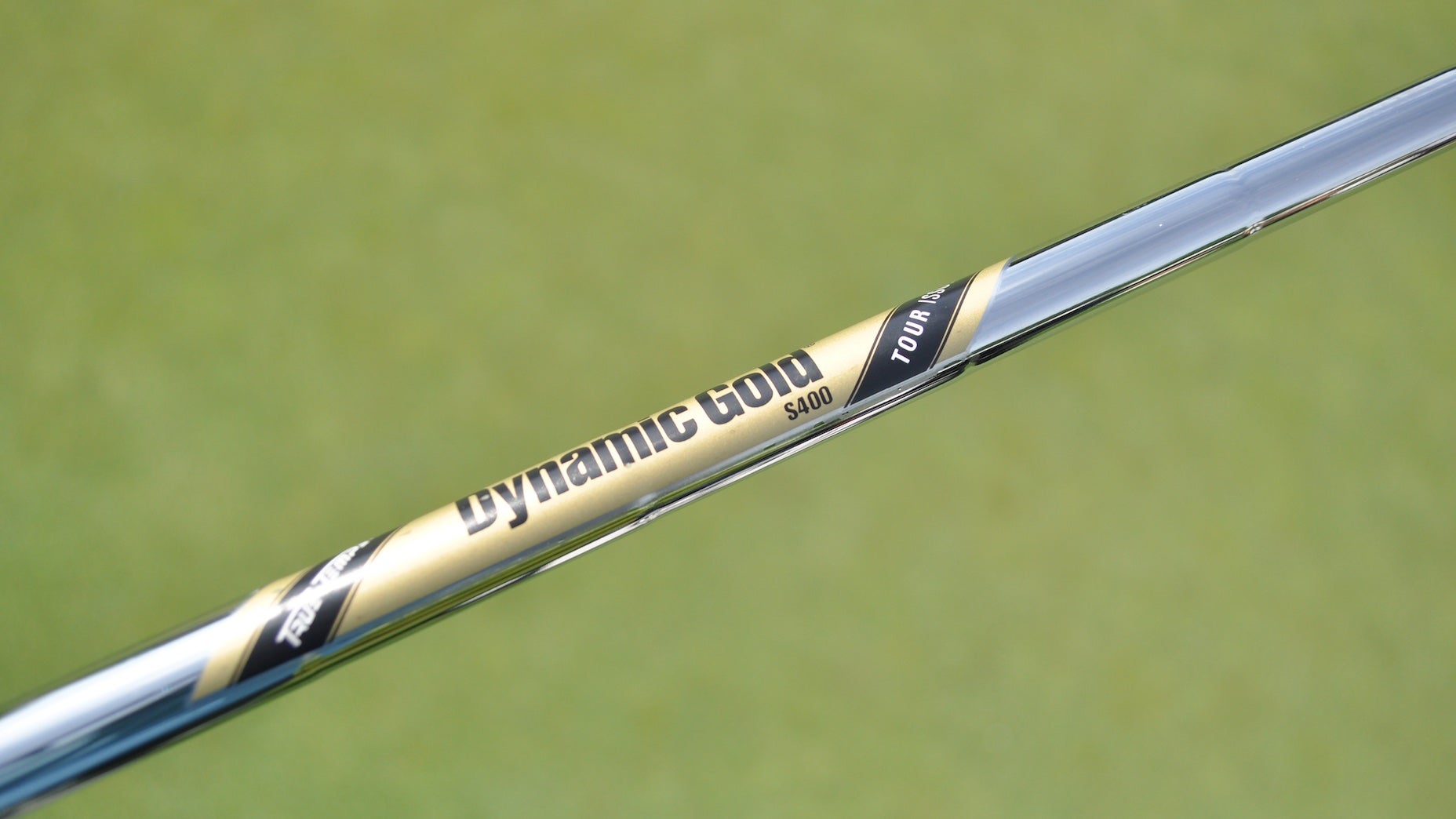
Jonathan Wall/GOLF
Professional golfers are equipment tastemakers, particularly when it comes to the amateur crowd. Whatever is successful, trendy and visible on the PGA Tour has a good chance to do well at retail. The same can be said for shaft setups that have done well over the years, including one of the most popular: Opting for a softer flex shaft in the scoring clubs.
Go through the current top 10 in the Official World Golf Ranking and you’ll find seven players who currently use a slightly softer shaft flex in their wedges versus the irons.
$44.99
The True Temper Dynamic Gold Tour Issue is ideal for the player looking for a low launch, low spin shaft designed for optimum control and accuracy. You can buy the True Temper Dynamic Gold Tour Issue built to your required specifications.
The True Temper Dynamic Gold Tour Issue is the Gold Standard by which all other irons shafts are measured. It is the most successful shaft in the history of golf and still continues to dominate on professional tours each and every year. The Tour Issue shafts hold the industries tightest weight tolerances for exacting performance demanded by the best players. You can purchase the True Temper Dynamic Gold Tour Issue in the following flexes: S400, and X100.
View Product
How many are employing a similar setup? It’s impossible to give an exact percentage because players are constantly testing new wedges and shafts, but it’s probably somewhere in the neighborhood of close to half the field during a given event. Popularized by Tiger Woods — True Temper Dynamic Gold X100 in the irons and S400 in the wedges — during his heyday, there’s a benefit to be had with this shaft makeup if you’re an amateur golfer.
While it varies from player to player, most will notice a slightly lower ball flight and more feel in the hands with a softer flex. For some, it can also help maintain spin compared to using the same shaft across the board.
Considering many Tour players prioritize feel, consistency and control on shorter approach shots, it’s easy to see why so many drop down in flex with the wedges.
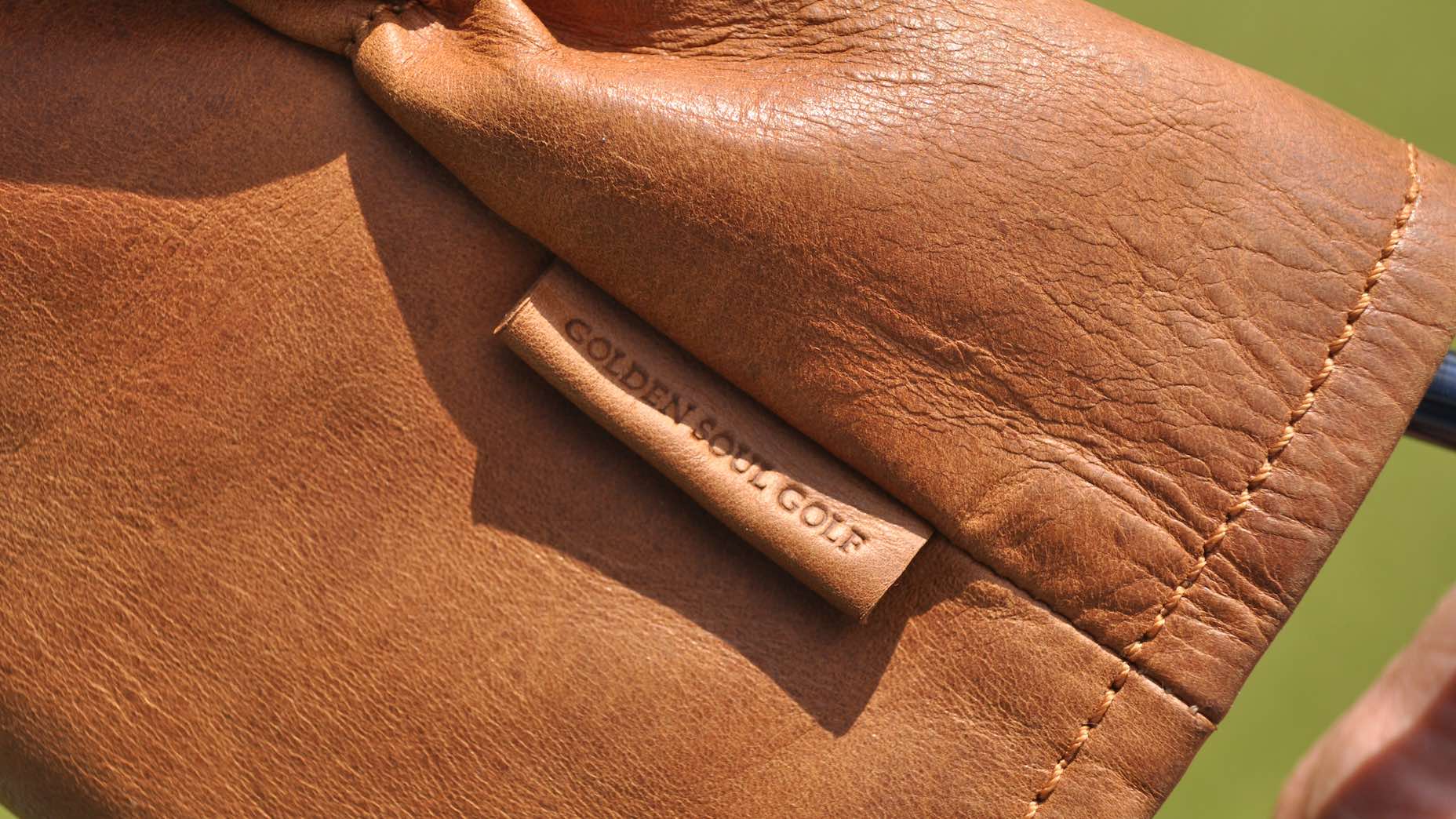
Jonathan Wall/GOLF
Headcovers remain the most popular way to express your personality on the course. Sure, some pros play it safe and go with covers emblazoned with the name and logo of the equipment manufacturer cutting them a check, but more than ever before, we’re seeing different looks from some of the biggest names on tour.
The blue and gray putter cover protecting McIlroy’s TaylorMade Spider Tour X mallet (above) isn’t something you’d be able to find at your local pro shop. The onion logo belongs to Ohoopee Match Club, an ultra-exclusive hideaway designed by Gil Hanse in Cobbtown, Georgia.
Adam Scott is another pro who uses a unique set of covers by Golden Soul Golf. The Aussie’s driver and fairway wood covers are classic, no-frills creations made from cowhide, wool and corduroy.
The current protector of Viktor Hovland’s wand is a menacing Viking staring straight into your soul. Look closely and you’ll see a few more Easter eggs dotting the sides that are symbolic of his life and interests. The orange and black stitching is no doubt a nod to his time spent at Oklahoma State University. And by the way, he still resides in Stillwater, Oklahoma.
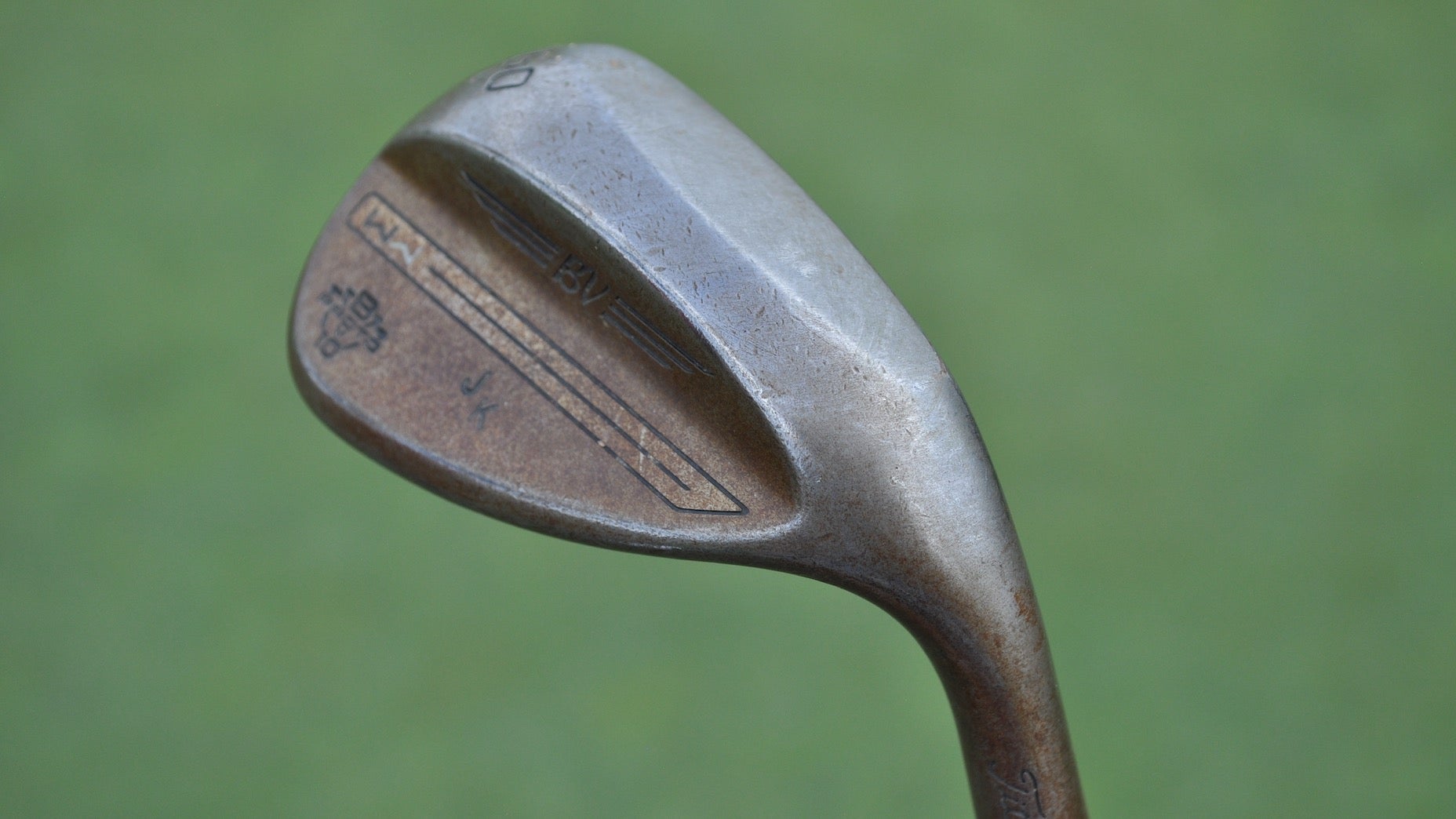
Jonathan Wall/GOLF
Wedge stamping has come a long way since the days when initials were hammered into the back of the head to give the scoring clubs come semblance of a personality. Then along came Rickie Fowler and singer Carly Rae Jepsen to shake things up in 2012.
At that time, Fowler was already disrupting the industry with bright colors and flatbill hats. Hoping to add some flair to his wedges, Fowler and Titleist Vokey Tour rep Aaron Dill started kicking around some stamp ideas before hitting on a few that stuck — namely a catchy chart-topper by Jepsen titled, “Call Me Maybe.”
Dill proceeded to stamp “Call Me Maybe” on the back of Fowler’s 60-degree Titleist Vokey Design SM4 lob wedge and watched as his creation went viral on social media.
$225
The A+ Grind is a brand new addition to the Vokey WedgeWorks lineup.
The A+ Grind comes from similar origins as the A Grind. Both are similar in the fact that they both came from smoothing out the grind lines on some classic Vokey grinds.
The name A+ comes from the idea that it is a similar grind to the A Grind but has more width and more bounce than the A grind. Hence the plus. The A+ will still have a smooth, fast feel through the turf but will suit players who need the club to dig less than an A Grind.
The A+ Grind is played by tour players worldwide as well as recent tour winner Davis Riley.
The WedgeWorks A+ Grind features a mid-bounce sole and is available in 58° and 60° lofts in Right Hand with a Raw finish.
View Product
Wedge stamping remains a popular way for pros to show off their hobbies, favorite songs or whatever else is on their mind, but we’ve seen a return to simpler creations on the back of the head. Think initials, kid names and song lyrics.
“I feel like they changed because they always want sharp grooves,” said GOLF’s Ryan Barath on the Fully Equipped podcast. “I remember Aaron telling me if it’s a slow day they’ll do funky stuff, but when they’re cooking, they can’t make it happen.”
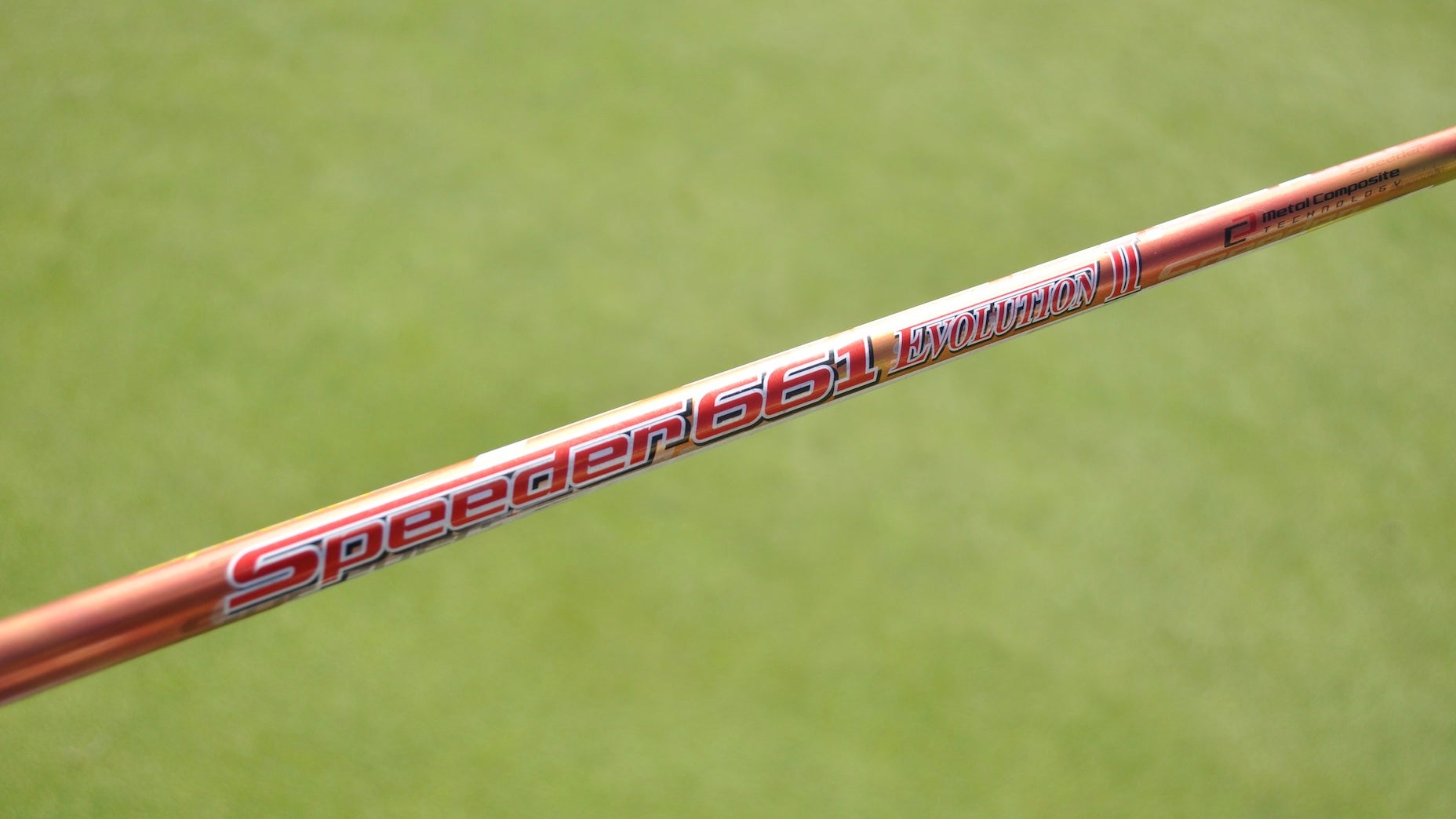
Jonathan Wall/GOLF
Advances in shaft technology have made it easier than ever to justify trying the latest and greatest. That being said, not everyone is embracing the changes. Brian Harman’s Titleist TS2 3-wood, for instance, is equipped with a Fujikura Speeder 661 Evolution II S shaft that dates back to 2016.
Not only is Harman using an older model 3-wood, but the shaft choice confirms he hasn’t made changes to the overall build. Once again, stick with what works. It’s a mantra other pros live by as well when it comes to their shafts.
As a gearhead, the shaft choice makes me downright giddy as you seldom see older model shafts in the wild on Tour. But they’re still out there. Speeder 661 Evolution II was a highly-anticipated product that featured a metallic red, orange, and yellow finish that glistened in the sun.
Want to overhaul your bag for 2024? Find a fitting location near you at True Spec Golf.